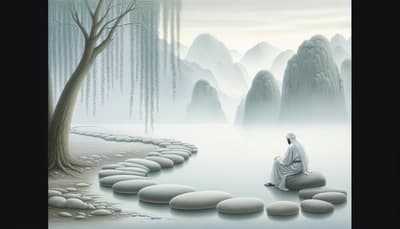Wisdom & Philosophy

What Is Presence? Tasting the Stillness Beneath Thought
What is presence, really? If you’ve ever wondered how some people seem to rest in a quiet clarity no matter what storms swirl around them, perhaps you sense there is more to your own awareness than just thinking and reacting. Presence is not a distant ideal—it is the subtle, immediate quiet that lives beneath words.

How to Find Peace in Suffering: Turning Pain Toward Awakening
When life aches and confusion grows dense, even the thought of peace can feel impossibly distant. If you are seeking how to find peace in suffering, know that yearning itself is a doorway—a tender, human invitation.

Dharma and Suffering: Can Life’s Purpose Exist Without Ego or Escape?
Suffering has a way of stripping the layers I thought protected me: beliefs, stories, ambitions — even my sense of “life purpose.” I once wondered whether dharma could be more than just another mask for the ego. This is how I learned to sit gently with pain, purpose, and the threads that hold them together.

Tao and Stoicism: Two Mirrors for Living (and Suffering) in the Modern World
Tao and Stoicism linger in quiet corners of thought, each pointing to a way through suffering, a way of acceptance. The questions are old. The practices, alive. Here, two streams widen—and, for a moment, run side by side.

Surrendering to Your Life Path: Understanding Karma, Choice, and Change
When life feels uncertain or unfair, questions about karma and destiny often arise. By exploring what surrender means—and how karma shapes but does not control our direction—you can cultivate agency, release anxiety, and participate more fully in the process of change.

Truth and Logic in Western Thought: Shadows on the Cave Wall
Across the changing stones and questions of Western philosophy, truth and logic appear, disappear, and return—shaped by the sunlight and the longing to understand.
